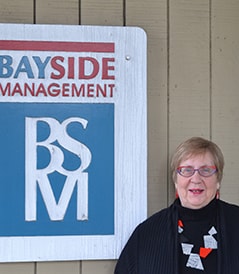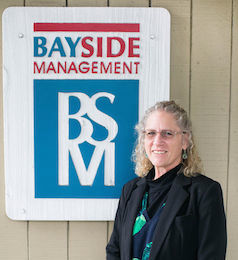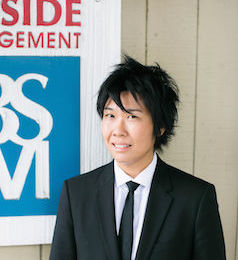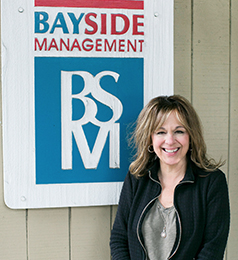
One of the most consistent ways to save money with your investment properties is to ensure that you’re taking full advantage of all the tax benefits and deductions that are available to you. There’s no avoiding the fact that you’ll have to declare your rental income on your annual tax filings. But, you can dramatically reduce your tax liability with a few key deductions. These can be invaluable in helping you minimize the cost of operating a rental property.
Understanding which items and expenses are eligible for tax deductions is essential, so make sure you have a great CPA or tax attorney who can help you. The advice we are providing today comes from our expertise as San Mateo property managers. You’ll want to talk to a tax expert, too.
Property Depreciation as a Deduction
One of the most common and important ways to limit your tax liability as a rental property owner is by using depreciation when you file your taxes. Your property has likely increased in value over the last tax year. But, you can still deduct a specific amount in depreciation when you file your taxes. The IRS has a lot of information for rental property owners on their website that pertains to claiming depreciation.
There are a few things to know about this tax deduction. First, it’s only eligible on the physical property. You cannot depreciate land. Also, you need to be precise when you’re calculating what you can deduct in depreciation. The most recent IRS guidelines provide for a rental property lifespan of 27.5 years. So, you’ll use that number to calculate your depreciation. Divide the cost of your property at the time you acquired it as a rental by 27.5. That’s the amount of depreciation you can deduct when you’re filing taxes.
Mortgage Interest is Tax Deductible
Are you still paying down the mortgage on your investment property? If so, the interest you pay on your loan is tax deductible.
You can deduct other types of interest too, as long as you can document that the interest pertains to your rental property. For example, if you use a credit card to make purchases for your investment (air filters, light bulbs, etc.), you can deduct the interest you pay on that credit card, as long as you can document the purchases are related to your investment.
Let’s say you buy a washer and dryer for a rental property. When you put it on a credit card, the interest on that card is tax deductible. If you’re going to claim this deduction, we recommend that you keep a credit card that’s specific to your rental property.
Tax-Deductible Maintenance
It costs money to maintain your rental property in San Mateo, and you can deduct those costs on your tax return. Examples of these expenses include repair costs and any materials that you need to keep your property in operable condition, such as paint, drywall, smoke detector batteries, and carpet.
Keep in mind that you cannot deduct the costs of improving your home. If you renovate the kitchen or add a bathroom, those expenses are not tax-deductible. You may only deduct what it costs to maintain your San Mateo rental property.
San Mateo Property Management
Outside of maintenance and repair costs, the expenses that come with leasing and managing your property are also tax deductible. These expenses may include:
- Costs of advertising and marketing
- Commissions to real estate agents
- Professional fees for property management, accounting, legal advice, etc.
- Landscaping
- Pest control
You can also deduct your local property taxes and the liability insurance you pay.
Owner Eligible Expenses
The costs associated with owning rental property are also tax deductible. This applies to you even when you work with a local property management company in San Mateo. You’ll still have expenses, especially when it comes to travel and your home office.
Maybe you find yourself traveling to your rental property from out of state. You can deduct the cost of travel. Airfare and lodging can be written off as long as:
- There’s a specific purpose for your business trip.
- Most of your time is spent on business activities.
- Your expenses are ordinary and necessary (don’t stay in the most expensive hotel)
If you drive to your rental property, you can deduct the standard mileage. Keep track of your itemized expenses and document everything. The IRS may need to see receipts.
There are also home office expenses that you can deduct. If you use part of your home as an office, and you conduct business associated with your investment property out of that office, you’re able to deduct some expenses.
Do you belong to real estate associations, subscribe to newsletters, or pay for conferences and continuing education? Those fees are eligible to be deducted from the income your rental property earns.
Not a Deduction – Definitely a Tax Benefit
1031 Exchanges
Let’s not forget the value of a 1031 exchange. This isn’t a tax deduction necessarily, but it is a tax deferral.
You can defer capital gains taxes when you sell an investment property by conducting a 1031 exchange. All you have to do is reinvest the proceeds of your sale into another income-producing property.
There are some strict rules, restrictions, and timelines that need to be followed when you’re doing a 1031 exchange. It’s worth the effort, however, because you get to grow your portfolio even while you sell a property at a profit.
Three main rules need to be followed when you’re protecting yourself from taxes in this way include the following three things:
- Your replacement property must be of equal or greater value to the property that you are selling.
- Your replacement property has to be identified within 45 days of selling the initial property.
- You must purchase that property within 180 days of selling the initial property.
As an investor, you can keep conducting 1031 exchanges to continue deferring those capital gains taxes. When you decide to sell and keep the proceeds, you’ll be required to pay those taxes.
 These are just a few of the best tax deductions available to real estate investors. To hear more, please contact us at Bayside Management. We lease, manage, and maintain investment properties in San Mateo and around the Peninsula, including San Carlos, Redwood City, Pacifica, San Bruno, Half Moon Bay, Daly City, Mountain View, Foster City, and Palo Alto.
These are just a few of the best tax deductions available to real estate investors. To hear more, please contact us at Bayside Management. We lease, manage, and maintain investment properties in San Mateo and around the Peninsula, including San Carlos, Redwood City, Pacifica, San Bruno, Half Moon Bay, Daly City, Mountain View, Foster City, and Palo Alto.
 Peter Boda
Peter Boda Jeff Hacker
Jeff Hacker Dylan Motchar
Dylan Motchar Barbara Boyd
Barbara Boyd Joanelle Russell
Joanelle Russell Mary Wiegmann
Mary Wiegmann Joseph DeNoia
Joseph DeNoia Beth Nagy
Beth Nagy Jasmin Peraza
Jasmin Peraza Carmin Wong
Carmin Wong Pauline Smith
Pauline Smith Victoria Taylor
Victoria Taylor Yvette Perreca
Yvette Perreca Anthony Fregoso
Anthony Fregoso Anthony Thompson
Anthony Thompson Drew Reischl
Drew Reischl Nick Lange
Nick Lange Collette Counter
Collette Counter Justin Barton
Justin Barton